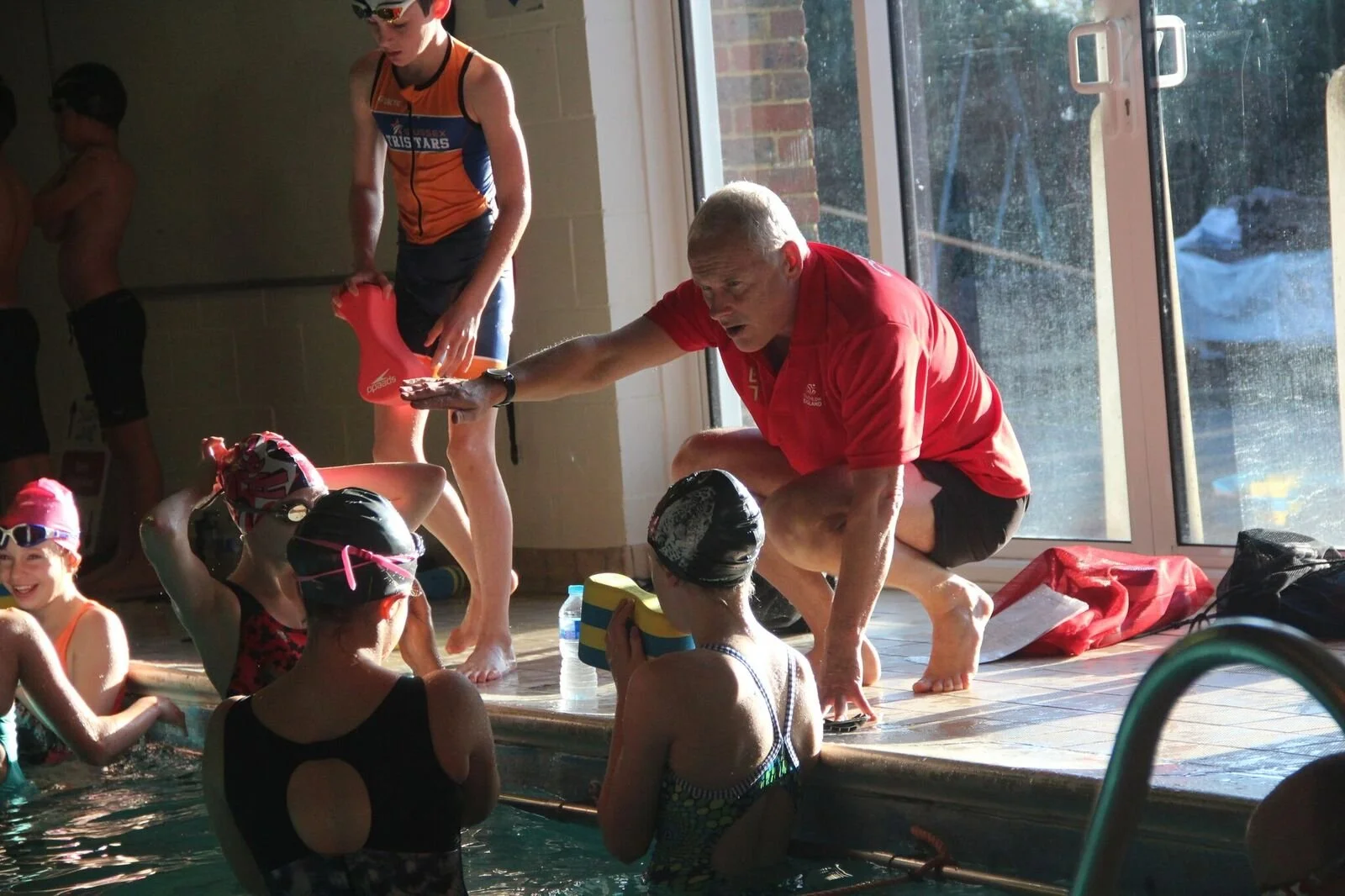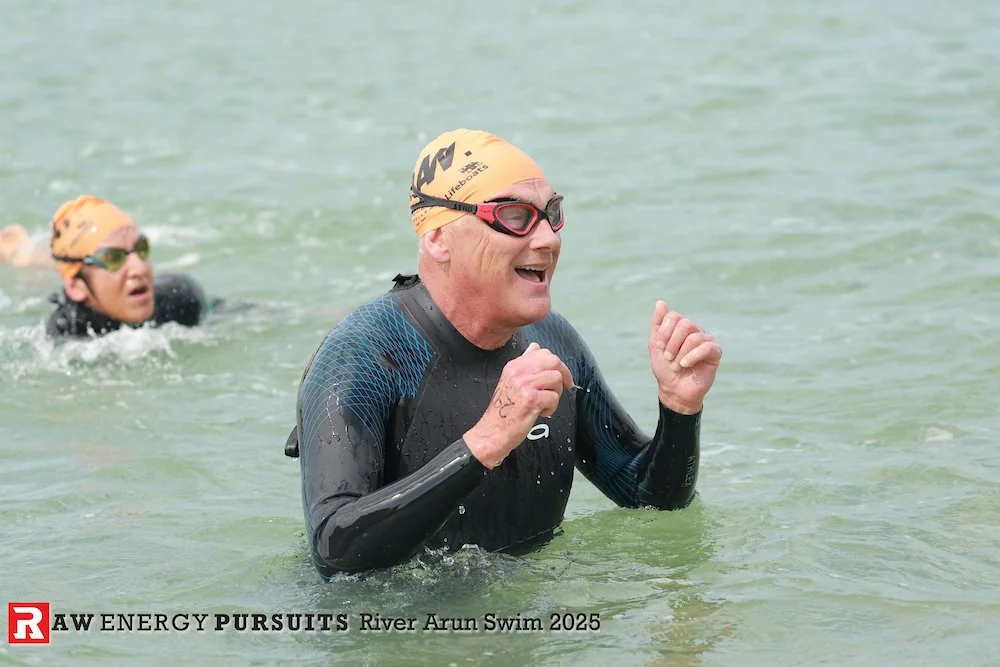This post comes out of several recent conversations which have left me wondering about the best and most impactful coaching models we are drawn to.
Tough Love?
First up, I was in a very thought provoking The True Athlete Project (TAP) members’ forum in which we were invited to share recollections of coaches who had inspired us. What was it about them that had an impact and how did that make us feel?
I shared my own experience of a coach - Roy Taylor at Brighton & Hove Athletic Club - who showed an interest in me and a generous readiness to guide my training when I was still very new to middle distance running. It wasn’t so much the actual training he suggested (set out in precise, careful detail, not all of which I followed); more that he generously offered his time and interest. The feeling of an unexpected, unconditional, attentive care and belief has stuck with me and fundamentally shaped how I want to be as a coach.
In contrast, though equally impactful, two others in our discussion shared their experiences of a different kind of model coach. Entering their sports at younger ages than I did, they each talked of coaches who imposed high standards and expectations, who were strict and demanding. In time they came to see a softer, “more human” side in their respective coaches and in both cases expressed a feeling of knowing their coaches “had their backs”, fiercely protective and dedicated to helping each to the highest achievements.
Something to be done differently?
I came away wondering about our two very different sets of experiences. Would a harsher, disciplinarian have worked for me as an up and coming runner, unproven, uncertain though bursting with enthusiasm to find out how good I could be? There’s a rebellious streak in me so maybe not. And it’s very unlikely I would have made the cut anyway, given my unproven ability at the time. It was only when I reached a high level that other coaches started showing an interest. I also think of the high drop out rate in sports where the demanding, dominant coach seems to be ingrained as the model.
Yet ‘tough love’ clearly did something very positive and affirming for at least the two in our discussion group at the impressionable point in their lives. Is there something in the modelling of a direct, “this is what you’ve got do” style I might learn from and adopt? As we’ll see, some athletes I coach look for and ask for such directive instruction.
Pushing to the Maximum
On to another conversation and this one with a professional football coach who showed an interest in the ideas around confidence-centred coaching - and who I was keen to learn from about the kind of environment he coaches in.
At one point he asked how to push those he is coaching to their absolute maximum effort? Some of the training involves total, full out efforts so that, come match day, they are ready to hit top speed and give their all. He sensed some footballers held back that little bit - jokingly referring to expecting to see everyone at the point of collapse, sick with the effort. What relevance could a confidence-centred coaching have to get what he felt was the best from them? And aren’t coaches meant to spur and cajole and push those they coach to great achievements?
Now, I am perfectly capable of setting full-on, mean sessions for those I coach, pushing at the edges of what feels possible - and going beyond them. Yet these are always rooted in the athlete feeling in themselves what it is to push at their limits - rather than a critiquing, watchful coach at the side nor a fancy gadget on their wrist.
As I set out in Beyond Belief, I believe there is a way to coach that first, before anything else, goes to what is felt by the athlete rather than what it looks like to a coach. I want to heighten an athlete’s ability to attune themselves to their form, effort and movement. And in this way, even in the harshest and most challenging conditions of being right up against it, my experience is they will go to their limits and beyond, surprising themselves with what they can do and come away with an irrepressible desire to go further.
I’m conscious, though, that I don’t work in a high pressure environment where the performance of those I coach has a direct impact on their and others’ livelihoods, nor on mine, as it can in professional football and other high profile sports. The pressure to stick with the conventional, “just do” what the expert says model of coaching must be intense. Yet it is precisely in such environments that I think the ideas and practices of Beyond Belief can be shown to deliver great results - as I am excited to prove.
And here is another key principle of confidence-centred coaching: of being self-critically aware of whose motivation is at play. What Pete Carroll, former Head Coach at the Seattle Seahawks, would say: “who’s driving the bus here?”
“telling & evoking”
Last conversation. I listened in to a Motivational Interviewing (MI) webinar last week. In the words of its founders, MI is “a particular way of talking with people about change and growth to strengthen their own motivation and commitment” (Motivational Interviewing 4th Edition, Miller & Rollnick). So not clever analysis, advice giving or instruction. And note, in relation to the previous thoughts, the motivation lies with those being supported, not driven by the therapist, teacher, coach or other supporter, no matter how well intentioned or expert they may be.
In the conversation Stephen Rollnick wondered, however, whether they had over-simplified this contrast between, as he characterised it, “telling” and “evoking”. Could it be that some “telling” as in advice giving and more directive guidance might, at times be needed? I think of the somewhat frustrated swimmers struggling with their technique who look at me and demand “just tell me what I should do!” Or the prospective client who says they want a detailed, week by week, day by day plan for them to follow that will guarantee the results they are after if followed to the letter.
Although hard to navigate and find the balance and boundaries, I come back to the essence of confidence-centred coaching: of helping those we coach, and ourselves, find an easy fluency, being attuned mind and body to self and others and a depth of meaningful connections. And I know the effects can be extraordinary, people going far beyond what they believed possible. Beyond belief coaching.
So in the case of the swimmers looking for that more directive instruction, I am ready to offer suggestions for them to try for sure - but after first seeking to understand what seems to be getting in their way of the fluency and composure we are after and always asking them how each suggestion felt: smoother, faster, more controlled or relaxed… whatever sensation we are aiming for.
And in providing detailed Training Guides to build toward a big challenging event or peak for a major competition, the emphasis is always on first understanding each athlete’s aims and aspirations and their individual circumstances. From there we explore together what works, learning and adapting as we go along - and with no empty promises of guaranteed results but an excitement to discover how far we can go.
Still revelling in that irrepressible desire to surprise myself with what I can do. Photo by Sussex Sports Photography
Final thought. I shared some of these questions with a Community of Practice of triathlon coaches that I belong to. I came away with a reassuring view that different coaching styles will suit different people and that we must each find what feels true to ourselves, rather than trying to be all things to all people. In the end, the models of coaching to look to start with knowing and being true to ourselves.
Many thanks to all at TAP, to AP at Sussex Coaches Network, MI & Beyond and friends and colleagues at the Community of Practice for sharing their experiences and insights so generously.
As always, please leave any reflections and thoughts in the comment box below. (That’s a suggestion born of genuine curiosity, not a direct instruction!)



